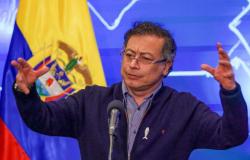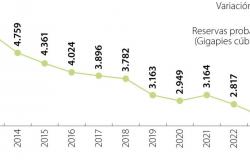The fuel dropped 4 percent and that makes those who have to load, but on the other side of the supplier’s hose, in the Federation of Fuel Entities of the province they think that this thus exacerbates a delay in price that is around 16 percent.
The measure of the national government occurred within the framework of a strong retraction of sales, which has been 15 months.
With this provision – according to the price stability in a context of inflationary deceleration and adapt the commercial policy to the evolution of local and international economic variables.
Thus, for the second time in the last year, YPF lowered the value of the fuel, product of the fall in the international price of the Brent crude factors and factors such as the price of the exchange rate, the current tax burden and the price of the biofuels, according to what was detailed from the national oil company.
For its part, the National Government postponed the expected update of taxes on liquid fuels (ICL) and carbon dioxide (IDC).
Juan Carlos Basilico, president of the Federation of Fuel Entities of the Province of Buenos Aires, told this newspaper that the reduction derives from a new postponement of the monthly tax rise that has been applied after a parate applied in the previous government.
In front of the measure, he considered that “the price of fuel is cheaper than it would have to be. Because if the 16 percent corresponding to taxes is applied, which the government had been applying and this month decided to postpone, there is the issue.”
“It is a provision that comes from the previous government. It was stopped applying between November and December 2023, before President Javier Milei assumes. His management was 5 or 6 months without updating them until he resumed their implementation,” he recalled.
As stated by the referent of the stations sector, the liter of super gasoline that today in YPF costs $ 1,198 would have to cost $ 191.68 more, that is, almost $ 1,390.
Despite this, Basilic indicated that this year the price will not be normalized. “Unless inflation continues to go down. But it won’t shoot so much,” he said.
In addition, as another determining factor, he added that in the bordering countries it is marketed practically the same as in Argentina. “In Brazil it is almost like here. Therefore, they no longer cross the border to load the tank in the local service stations. The same happens with Uruguay and Paraguay,” he said.
Measure and sales
After more than a year of consecutive monthly falls, the sale of fuel in the country began to show recovery signs.
The demand for NAFTA and GASOIL, as of March, registered a slight rebound of 0.89 percent compared to the same month of the previous year, according to data from the Ministry of Energy of the Nation.
In the context, Basilic argued that the determination to lower the fuel “is a good measure”, because “if the dollar increases, the gasoline rises. The same happens with the barrel. But the crude fell and the dollar is in the same trend,” he explained.
“In addition, there are several provinces in which the sale of fuel increased,” added the manager.
Different is the situation in Buenos Aires and city territory, where the sale of gasoline and diesel does not yet rebound.
“In the province the fall is approximately one percent. It was not so much because of the issue of tourism,” Basilic said.
In La Plata, decrease is between two and three percent. “The sale fell a bit for the holidays, because the city is empty. But it is not an alarming situation,” Basilic said.
With the four percent reduction announced YPF, they expected the rest of the oil companies to fold to the measure. Axion, for example, also modified its prices.
In the YPF service stations of the region, the new value of the gasoline was as follows: the liter of Super that cost $ 1,222 to assert $ 1,198 and the infinity type of $ 1,506 fell to $ 1,416. The 500 diesel diesel that came out 1.213, is now worth $ 1,177 and the infinia diesel that was at $ 1,472 further down than expected, located at $ 1,354.






